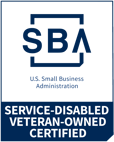This blog is based on Episode 11 of our GovEd Talks Video series: Speed up Change Management at the Speed of Change by Dr. Raman Attri, Training and Learning Manager at KLA.
In the fast-paced landscape of modern business, adaptability is paramount. The ability of an organization to swiftly respond to evolving demands can often mean the difference between success and stagnation. As John Lewis Fred aptly stated in his book Breakaway, speed is indeed a formidable competitive weapon in today's world, regardless of whether you operate in the nonprofit sector, governmental sphere, or within a multinational corporation. The recent global pandemic vividly showcased the imperative of rapid adaptation, as organizations scrambled to pivot their operations and embrace new ways of working virtually overnight.
Understanding the Challenge: The Importance of Proficiency in Change Management
For many organizations, implementing change—be it new technologies, processes, or structural adjustments—can be a daunting endeavor. Yet, it is essential for staying relevant and competitive in a dynamic environment. The key challenge lies in ensuring that these changes are not only effectively implemented but also embraced and mastered by the workforce. This is where the concept of change management comes into play.
The ADKAR Model: A Framework for Change Management
Change management is the art and science of guiding individuals and teams through the process of organizational change. At its core, successful change management hinges on enabling employees to master new tasks, behaviors, and systems, ultimately driving proficient performance and desired outcomes. The ADKAR model of change management—awareness, desire, knowledge, ability, and reinforcement—provides a structured framework for facilitating change adoption among employees.
Strategies for Accelerating Time to Proficiency
However, achieving proficiency in new skills and processes takes time. Organizations must navigate the journey from awareness to proficiency efficiently to minimize disruption and maximize productivity. Research conducted across various sectors, including Fortune 500 corporations, government agencies, NGOs, and military organizations, has identified several strategies for accelerating the time to proficiency and facilitating smoother change transitions.
Central to expediting proficiency is the creation of a nurturing ecosystem that places employees at the forefront of change. By prioritizing employee-centric initiatives, organizations foster a supportive environment conducive to rapid skill acquisition and adaptation. This ecosystem encompasses various elements, including managerial support, peer collaboration, coaching, mentorship, technological enablement, and job environment optimization.
Leadership plays a pivotal role in championing employee-centricity and driving proficiency initiatives forward. By emphasizing the importance of employee empowerment and skill development, leaders instill a culture of continuous learning and growth within the organization. Managers are tasked with providing structured coaching and guidance, ensuring that employees receive the support and resources needed to navigate change effectively.
Research Insights: Lessons from Leading Organizations
Peer collaboration and knowledge-sharing platforms further enhance the proficiency ecosystem, allowing employees to learn from each other's experiences and best practices. Coaches and mentors serve as invaluable resources, offering personalized guidance and support tailored to individual needs. Technological tools and systems are leveraged to streamline processes and facilitate learning, empowering employees to adapt to new technologies and workflows with ease.
Ultimately, the goal of the proficiency ecosystem is to accelerate the journey from awareness to proficiency, enabling employees to quickly master new skills and contribute meaningfully to organizational goals. By fostering a culture of agility, adaptability, and continuous improvement, organizations can position themselves for success in an ever-changing business landscape.
In conclusion, effective change management is not merely about implementing new processes or systems—it's about nurturing proficiency and empowering employees to thrive in an evolving environment. By embracing employee-centricity and fostering a supportive ecosystem, organizations can accelerate change adoption, drive proficient performance, and stay ahead of the curve in today's fast-paced world.
If you're interested in learning more about change management, consider enrolling in our course Leading Policy and Organizational Change in Government. In this course you will learn how to increase organizational change readiness by designing strategic policy as an effective driver of organizational change.













